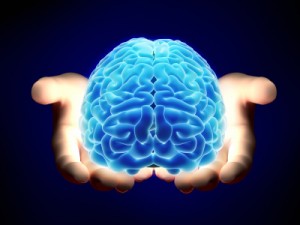Brain Teasers for each Cognitive Ability: Perception, Attention, Memory and more
 First of all, what is cognition? Cognition has to do with how a person understands and acts in the world. It is the set of abilities or processes that are part of nearly every human action.
First of all, what is cognition? Cognition has to do with how a person understands and acts in the world. It is the set of abilities or processes that are part of nearly every human action.
Cognitive abilities are brain-based skills we need to carry out any task from the simplest to the most complex. They have more to do with the mechanisms of how we learn, remember, problem-solve, and pay attention rather than with any actual knowledge. For instance, answering the telephone involves at least: perception (hearing the ring tone), decision taking (answering or not), motor skill (lifting the receiver), language skills (talking and understanding language), social skills (interpreting tone of voice and interacting properly with another human being).
Mental functions or cognitive abilities are based on specific neuronal networks. For instance memory skills rely mainly on parts of the temporal lobes and parts of the frontal lobes (behind the forehead).
In the table below, you can browse through the main brain functions involved in cognition. You will also find brain teasers that will help you exercise the cognitive abilities described. Learn, and have fun!
COGNITIVE ABILITIES ARE BRAINS FUNCTIONS
| Cognitive Ability/Brain Function |
Skills involved |
|
Perception |
Recognition and interpretation of sensory stimuli (smell, touch, hearing, etc.) Brain teasers: |
|
Attention |
Ability to sustain concentration on a particular object, action, or thought, and ability to manage competing demands in our environment. |
|
Memory |
Short-term/ working memory (limited storage), and Long-term memory (unlimited storage). |
|
Motor skills |
Ability to mobilize our muscles and bodies, and ability to manipulate objects. Brain challenges:
|
|
Language |
Skills allowing us to translate sounds into words and generate verbal output. Brain teaser: |
|
Visual and Spatial Processing |
Ability to process incoming visual stimuli, to understand spatial relationship between objects, and to visualize images and scenarios. Brain teaser: |
|
Executive Functions |
Abilities that enable goal-oriented behavior, such as the ability to plan, and execute a goal. These include: |
.
COGNITIVE ABILITIES CAN IMPROVE IF EXERCISED
With age, some cognitive abilities decline, especially executive functions. In addition, cognitive abilities that are not used regularly tend to diminish over time. Fortunately, growing evidence shows that decline can be delayed with appropriate lifestyle options and practices.
To learn more, you can read  The SharpBrains Guide to Brain Fitness: How to Optimize Brain Health and Performance at Any Age (284 pages; April 2013).
The SharpBrains Guide to Brain Fitness: How to Optimize Brain Health and Performance at Any Age (284 pages; April 2013).
